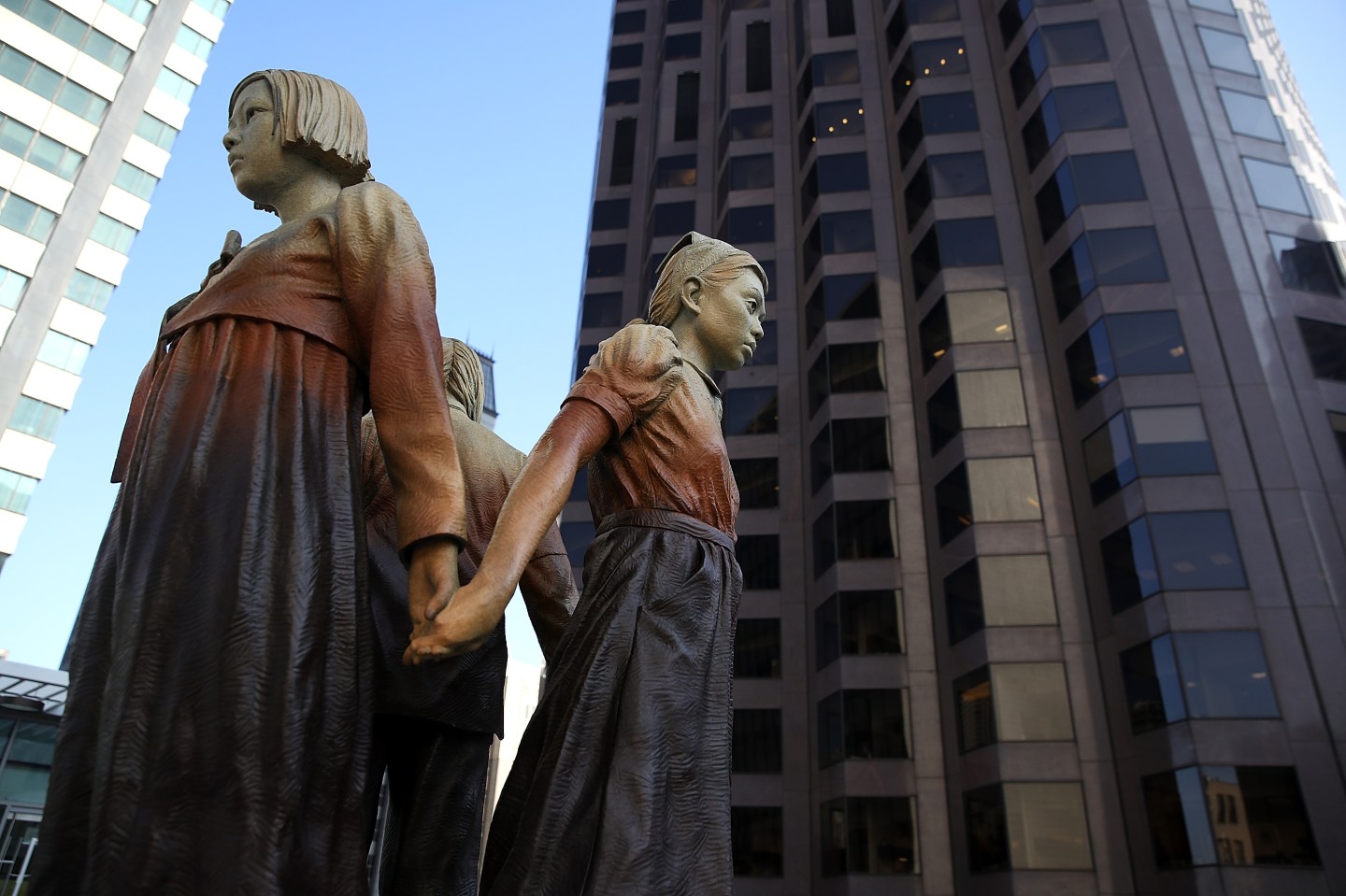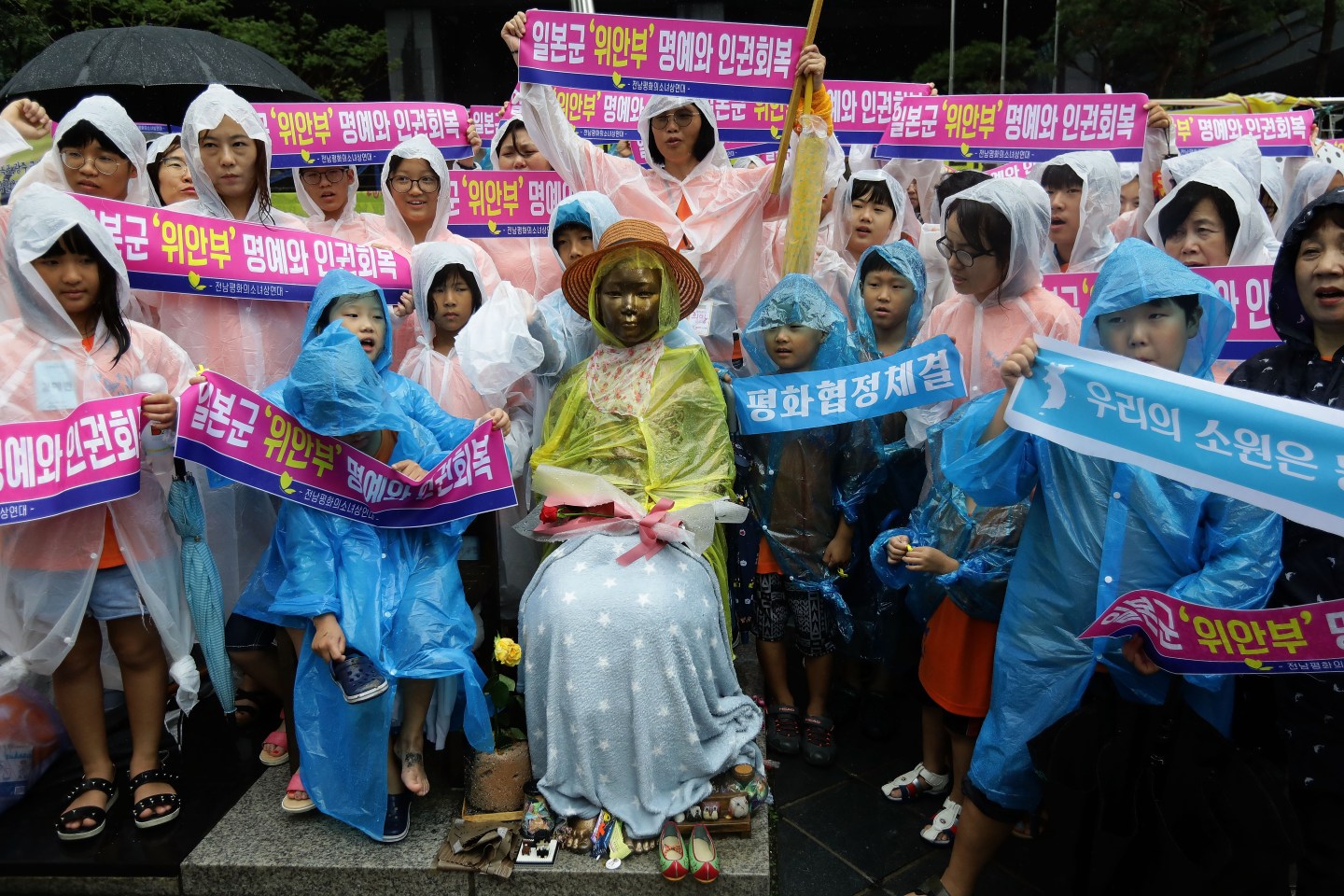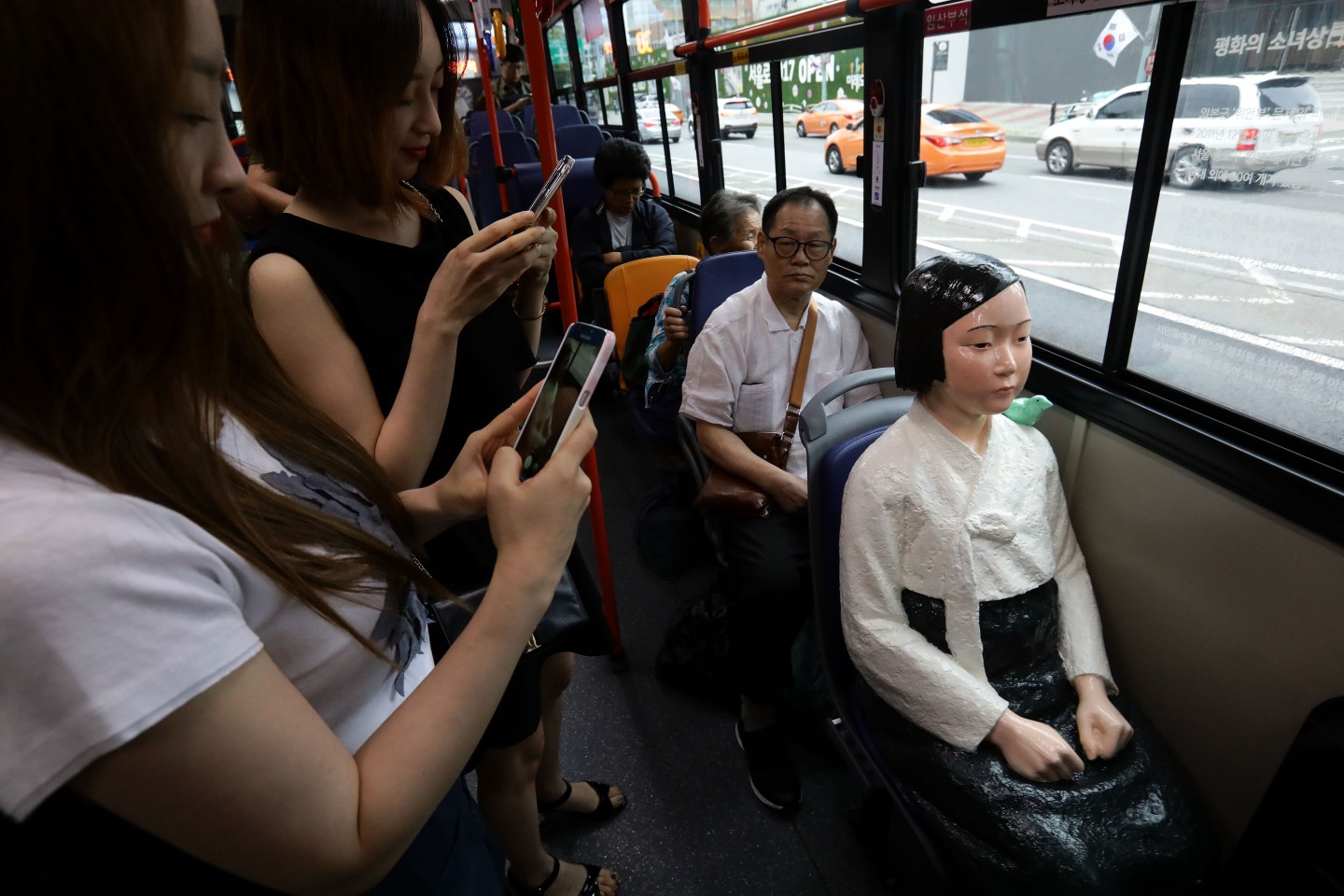South Korea will announce Tuesday whether it accepts the terms of a deal with Japan to make reparations for Korean women who were forced to serve as sex slaves for Japanese troops during World War II.
At the request of South Korean President Moon Jae-in, a panel reviewed the deal made between the two countries in 2015 to settle the issue and released its findings at the end of December. Moon, who was elected in May, promised to revisit the 2015 deal while he was running for office. The panel concluded that the government failed to represent the victims when negotiating the terms of the deal.
The announcement Tuesday could mean revisiting a decades old, painful argument between Japan and South Korea.
Who are comfort women?
“Comfort women” were lured or coerced into living in brothels and serving as sex workers for the Japanese military in countries that were occupied by the Axis power during World War II. Many of these women were from Korea. The term comes from the word “ianfu,” a Korean euphemism for prostitutes which translates to “comfort women.”
Between 80,000 and 200,000 women from Korea, China, Taiwan and other Southeast Asian countries were forced to work as sex slaves for the Japanese Imperial Army, according to historians.

These young women worked in temporary brothels set up along the front lines. They had often been abducted from their homes and were forced to have sex with as many as 70 men each day.
Fewer than 40 comfort women are still alive in South Korea, and all of them are aged 85 or older. One of the most outspoken survivors, Kim Gun-ja, who was forcibly sent to a wartime brothel as a 17-year-old and tried to take her life seven times in her three years as a sex slave, died in July.
“My honor was not restored 70 years after the nation’s liberation (from Japanese rule),” she said in her final public comments.
The ugly legacy has been a point of tension between Japan and South Korea for years and is a painful remnant of Japan’s colonial rule over Korea from 1910 until its defeat in 1945 at the end of WWII.
Comfort women statues, honoring the memory of the women detained and raped during wartime, have been installed in front of Japanese buildings in South Korea. San Francisco installed a comfort women memorial in November, causing their Japanese sister-city, Osaka, to cut ties.


The Deal Between South Korea and Japan
In 2015, South Korea reached a deal with Japan that both countries described as “final and irreversible” at the time.
Japan’s Prime Minister Shinzo Abe offered an apology and $8.3 million in payment to the victims, intended to provide care for them in old age. In return for the funding and the apology, South Korea agreed not to criticize Japan on the issue again.
The deal was applauded by the international community, but criticized in South Korea as not centered enough on the victims.
“We are not craving for money,” Lee Yong-soo, an 88-year-old survivor, said. “What we demand is that Japan make official reparations for the crime it had committed.”

The current President of South Korea, Moon Jae-in ordered a panel to investigate the agreement. The deal was negotiated under his predecessor Park Geun-hye, who was impeached by the South Korean Parliament in December 2016 on corruption charges.
“The reality is the majority of our people cannot emotionally accept the comfort women agreement,” Moon told Abe in June 2017.
The panel found that the South Korean government failed to properly communicate with victims and their families before reaching an agreement.
“A victims-centered approach, which has become the international norm when it comes to the wartime women’s rights, has not been sufficiently reflected, and the deal was reached through give-and-take negotiations as in an ordinary diplomatic issue,” the South Korean panel said in its report released at the end of December.
Next Steps for the Japan-South Korea Comfort Women Deal
South Korea will announce whether or not it will respect the prior agreement on Tuesday.
Japan’s Foreign Minister Taro Kono warned that attempting to revise the deal would be “unacceptable” and would make the relationship between the two countries “unmanageable,” but Moon has said the current agreement “cannot solve the comfort women issue.”
The South Korean government faces both internal and external pressures to strengthen relations with Japan as the nuclear threat from North Korea escalates. Both countries are important U.S. allies in the region.













